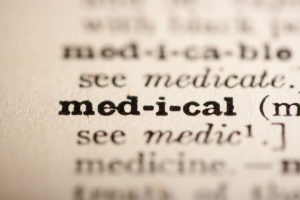Glossary Category: Medical Malpractice Types

If a medical professional or facility caused an overdose, this could be an act of medical negligence. A hospital, doctor, or any other healthcare professional who causes injury to a patient through negligence or omission is considered medical malpractice. This negligence might be an error in diagnosis, treatment, aftercare, or health management. Taking more than
Read More
A vegetative state occurs when a person is awake but does not show any signs of awareness. In contrast, a coma is when a person is both unconscious and unaware. A person in a vegetative state gives no coherent response to anything going on around them or any changes in their environment. They may or
Read More
To hold a healthcare provider legally liable in a medical malpractice case, their negligence must be the proximate cause of your injuries. A proximate cause is an incident that results in another event. There must be a clear, cause-and-effect link between the liable party’s negligence and the harm you suffered. At Medical Malpractice Help, we
Read More
In medical malpractice lawsuits, two main forms of damages are potentially available: compensatory damages and punitive damages. Most damages awarded to malpractice victims are compensatory damages, which pay victims for their economic and non-economic losses. Punitive damages offer additional compensation, and they are awarded to punish the defendant. Because the bar for receiving these damages is high,
Read More
In the medical field, the term “negligence” is often used interchangeably with the term “malpractice.” While the two terms describe similar wrongdoings, there are important differences between them. Most notably, negligence is one of several components of medical malpractice and on its own does not always imply liability for damages. Negligence is an action by
Read More